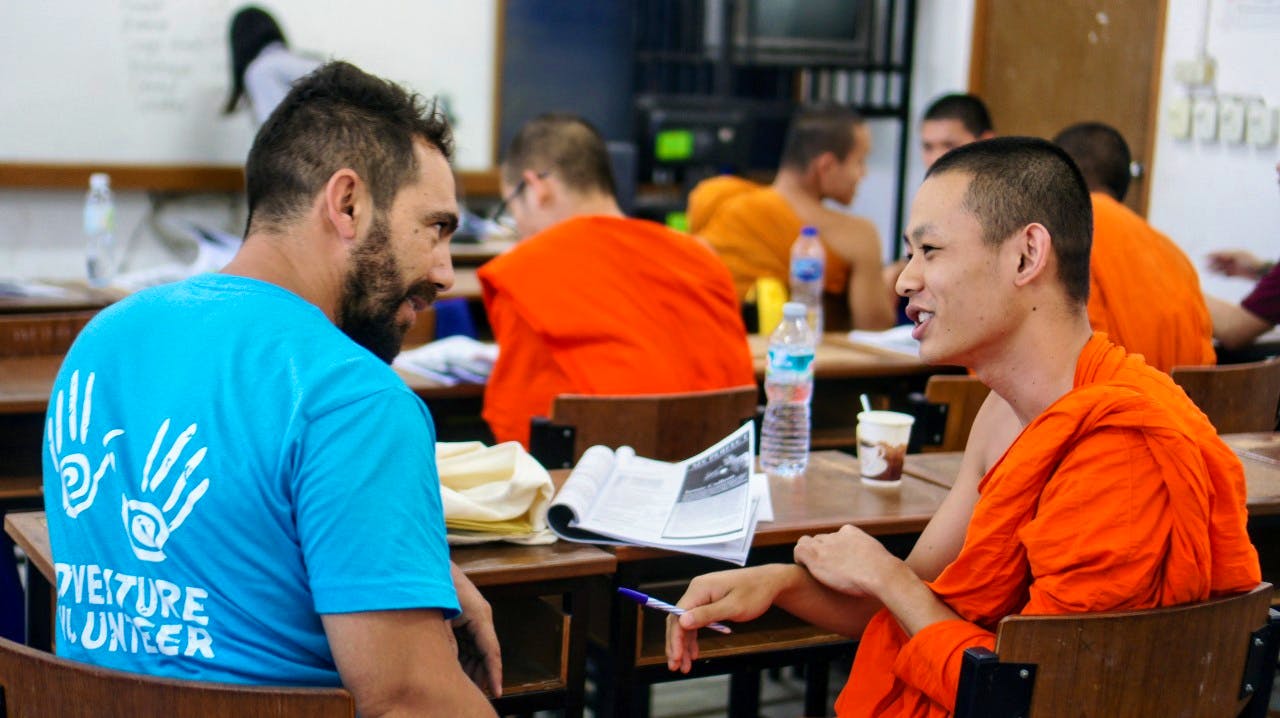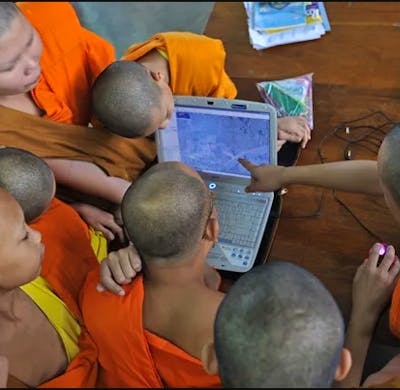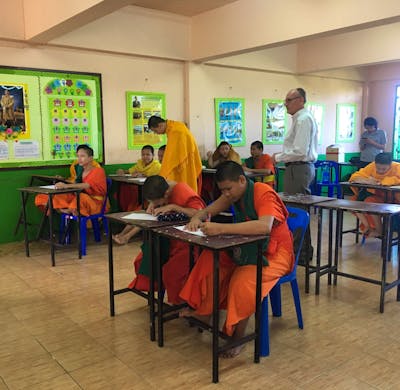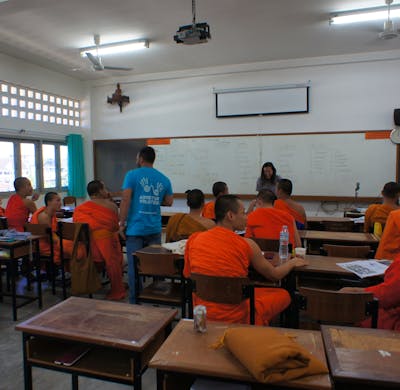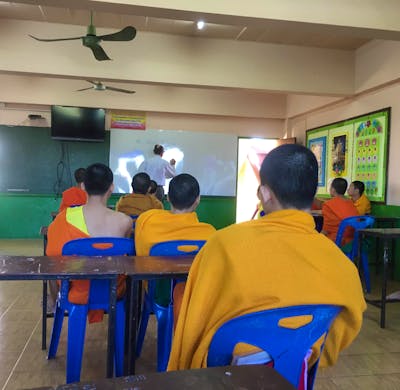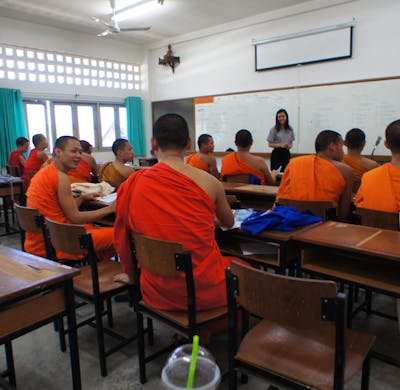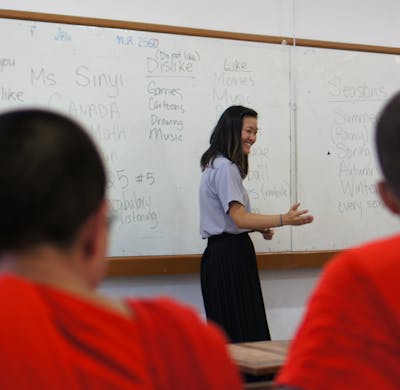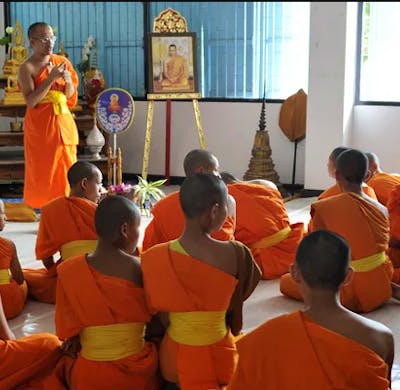2024 at Teaching with children
from 1,404€
English Teacher to Thai Buddhist Monks
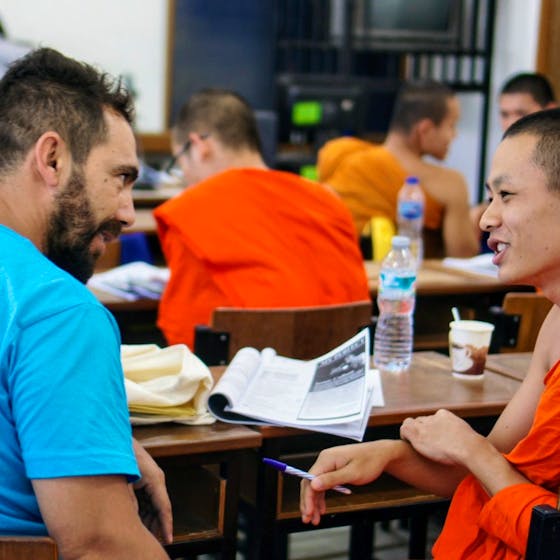
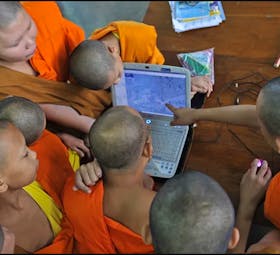
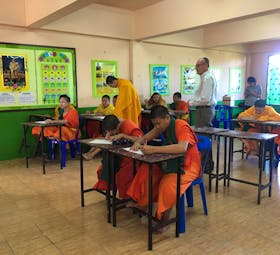
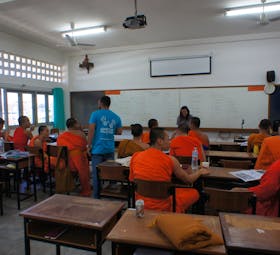
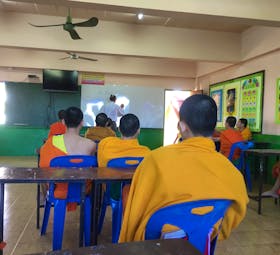
Highlights
- Help young buddhist monks learn valuable life skills by teaching them English
- Get a unique perspective of Thai culture by experiencing directly the life at monasteries
- Connect more with your spiritual side by participating in buddhist practices in the monasteries
- Discover and put into practice a passion for education
- Visit and get to know Thailand's rich cultural heritage and beautiful landscapes
Especially suitable
About the program
Get to know Buddhist monasteries first hand by helping monastery schools in teaching English.
As a volunteer, you will gain access to the completely different world of Thai temple schools or universities. In these educational institutions, the day starts very early: students arrive around 7:30 at school, where they receive some morning announcements and proceed to meditate until 8:30 when ...
Typical day
Classes at Buddhist temples follow these schedules:
In schools:
- 8:00 Morning announcements, assembly and prayers.
- 8:30 Start of school day, first class of the day begins
- 11:10 Lunch time
- 12:10 Assembly and prayers
- 12:40 Continue with classes
- 16:20 End of school day.
At the University:
Volunteers will ...
Free-time activities
You will volunteer in the beautiful city of Chiang Mai in northern Thailand. A complete contrast to Thailand's capital Bangkok, Chiang Mai is a smaller city with a great connection to the environment, providing direct access to the beautiful nearby forest mountains that are a hotspot for adventurers ...
Requirements
What's Included
What's NOT included?
Details on arrival
Program fees
Meet your organization

Adventure Volunteer
Non-profit - founded in 2017
Verified by Volunteer World
Coordinated by

Sergio
About the project
37 reviews ·  4.7
4.7
Location

You might also be interested in
-
Chiang Mai
Monastery
50 Plus Volunteering
Volunteer Trips for College Students
Group Volunteering
Mission Trips
Best Volunteer Programs
Planning a Gap Year in Thailand
Adults
Projects Abroad
Voluntouring
Global Volunteer Opportunities
Teach English in Thailand
Couples
Teach English in Vietnam
